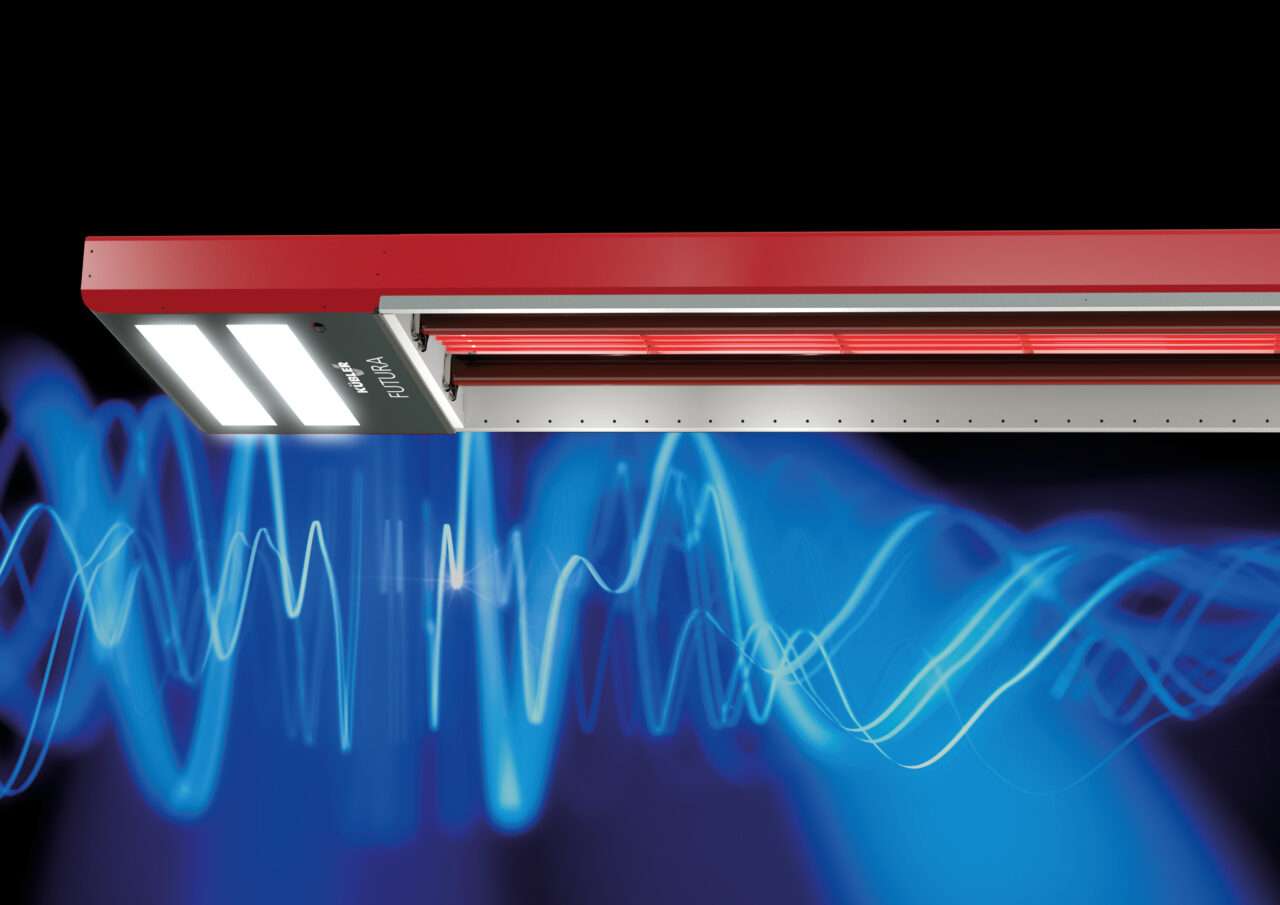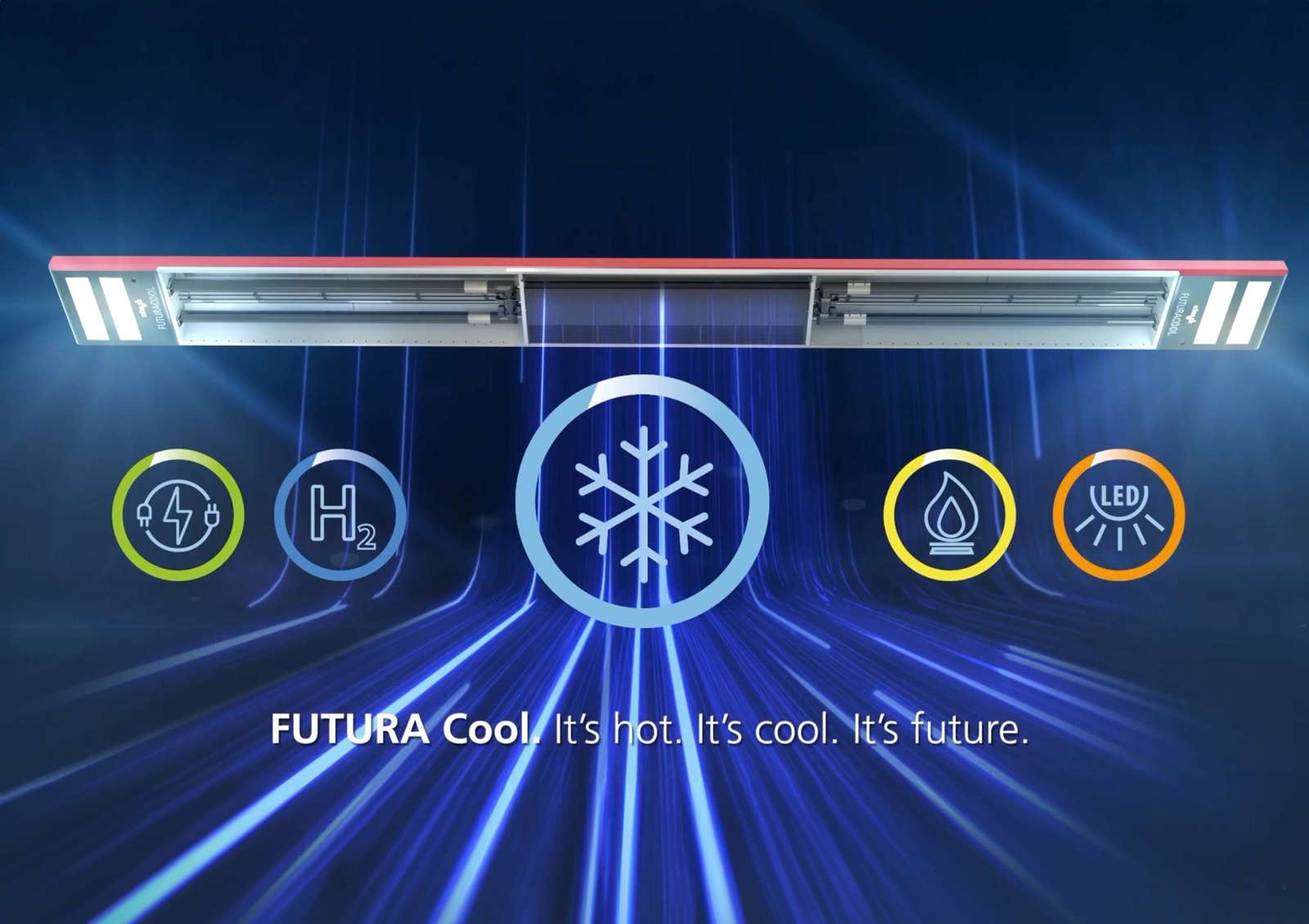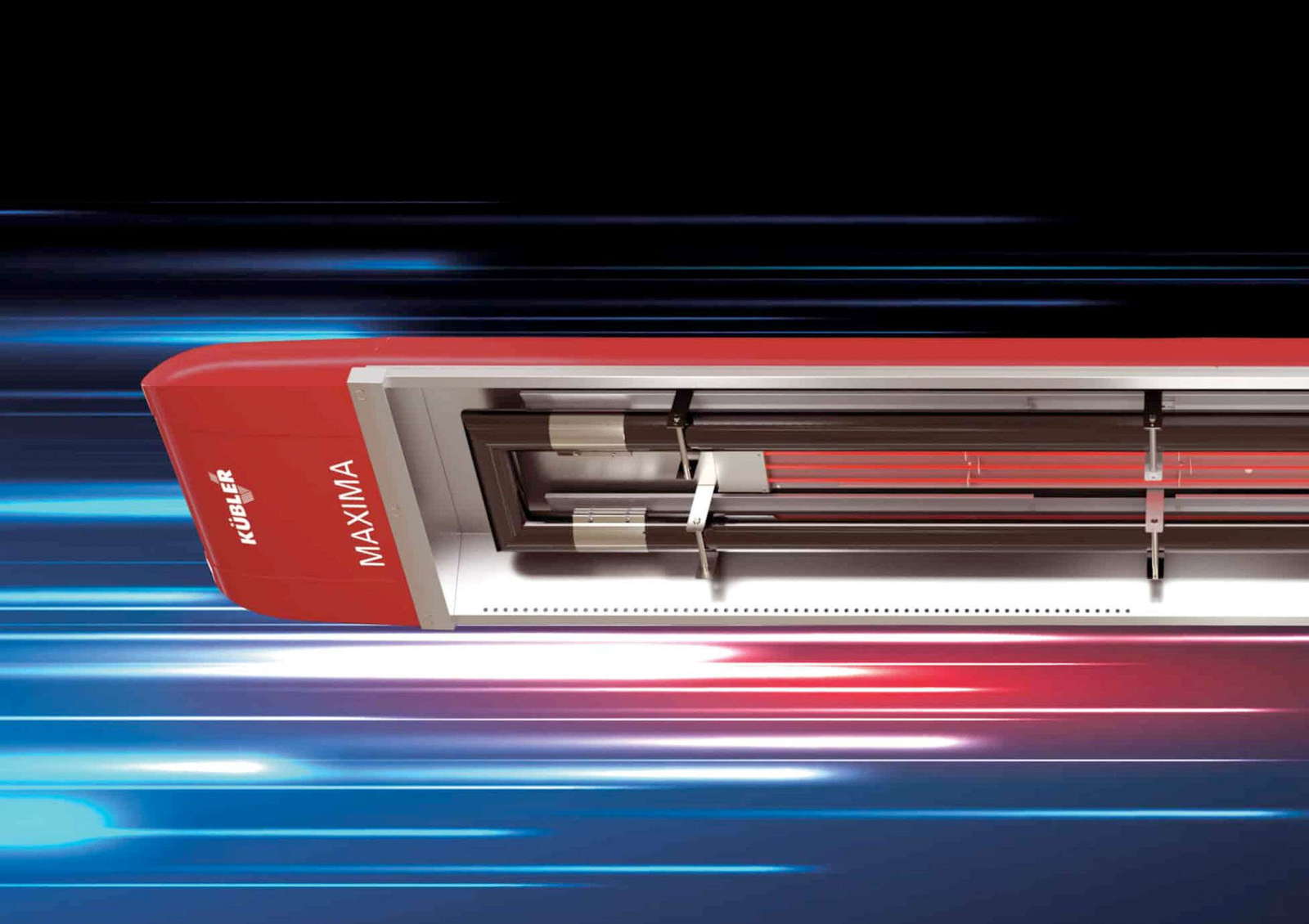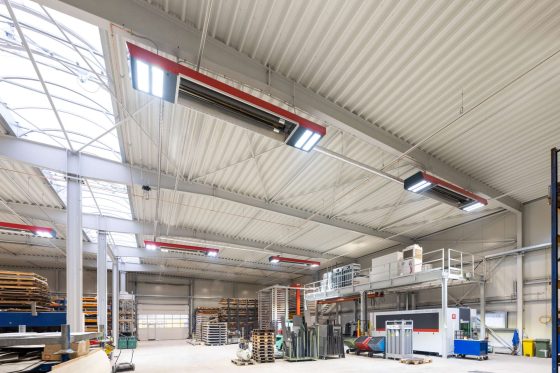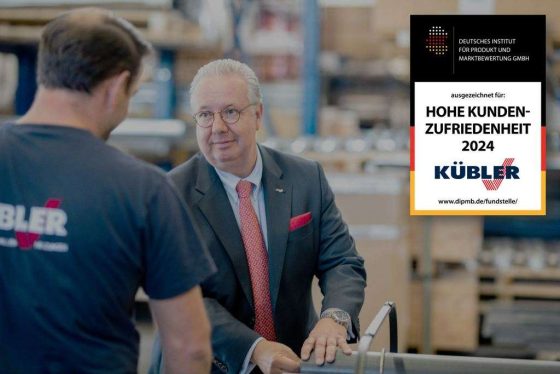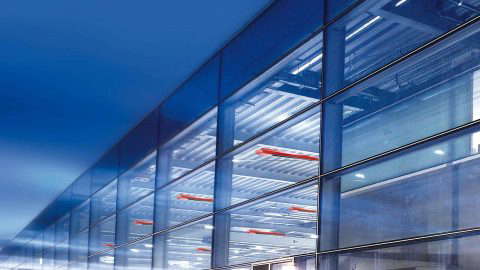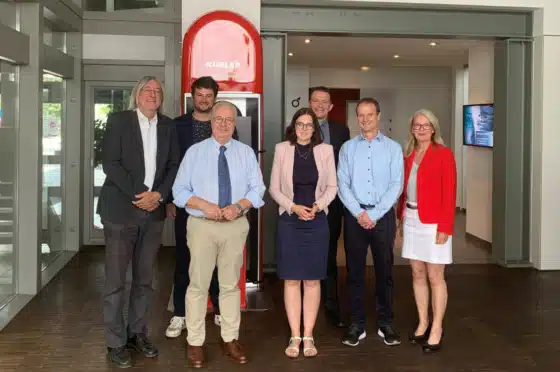Innovative indoor hall heating project is dena's latest example of good practice
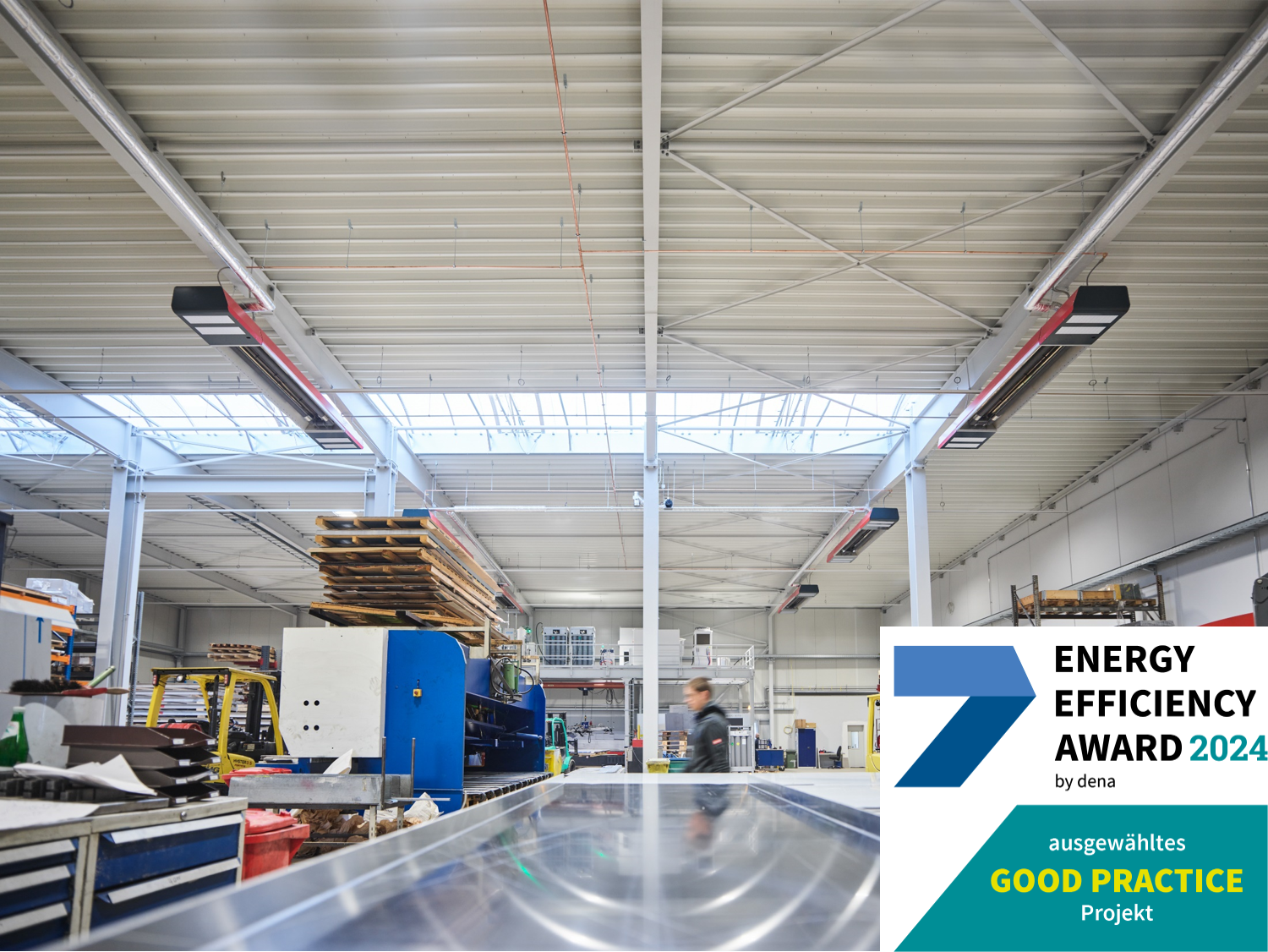
The company had set the highest energy efficiency standards for its new building. Initially, the new production building was to be heated by a combination of heat pump and underfloor heating, but this proved to be less functional in hall buildings. The decision was made to use the completely new energy-flexible infrared system FUTURA from KÜBLER - as a pilot project. "We are always breaking new ground ourselves with many of our projects. We are happy to help shape the process at KÜBLER," says Christoph Rotsch, Managing Director. "When we got to know the FUTURA, underfloor heating was off the table."
Two heating periods later, Kanter & Schlosser is still very satisfied. "A big advantage for us is that we can now heat with different energy sources," explains the company. With the FUTURA system, Trier is no longer exclusively reliant on gas. In the first heating period, the photovoltaic system took over the entire heating costs from around 11 a.m. onwards. Previously, the heating in the old building would have blown circulating air into the hall. Every time the door was opened, it immediately became very cold and it felt like it took an eternity for the temperature to return to normal. "Now we definitely have a much more pleasant heat quality in the hall - precise, without swirling up dust. This is very well received by the employees."
Another important advantage is the ability to heat the individual areas of the hall individually or switch them off when work is no longer taking place there. "We have set up four heating circuits that we can control via the FUTURA system. That saves a lot of energy. Especially when, for example, the metalworking shop closes early on Fridays and we can switch off the heating in this area," says Christoph Rotsch. Wasting energy is not an option for the future-oriented company. For this reason, Die Kanter & Schlosser is also happy to no longer be reliant on technologies such as underfloor heating, which cannot be controlled according to demand and have to run at night or at weekends.
All details about the measures, savings and results of the award-winning hall heating project can be found on dena's good practice page at this link: Energy-saving hall heating
-
The German government wants 65% renewable energy from 2024. "It can have it," says Thomas Kübler, founder and Managing Director of KÜBLER GmbH from Ludwigshafen. The hall heating specialist is presenting its latest developments and world firsts at the ISH. These are three systems that enable companies to save money and play their part in the energy transition.
-
"This award is a great honor for our company and confirms our ongoing commitment to excellence and customer satisfaction," said Thomas Kübler, Managing Partner of KÜBLER. "We would like to thank our valued customers for their trust and support, which has made this success possible. This recognition motivates us to continue to set the highest standards and [...]
-
The traditional Grün-Weiss Mannheim club is one of the largest tennis clubs in Baden. The club has two of its own tennis halls and thus offers continuous training opportunities for the players. However, heating the two halls from 1952/53 and 1972 was increasingly becoming a financial burden for the club. Between 30,000 and 35,000 liters of heating oil per year were consumed [...]
-
Green members of the state parliament Dr. Bernhard Braun and Fabian Ehmann at KÜBLER in LudwigshafenLudwigshafen, August 2022 - An important visit to KÜBLER in Ludwigshafen: Dr. Bernhard Braun (Chairman of the Bündnis90/Grünen parliamentary group), Fabian Ehmann (Spokesman for Economy & Start-ups, Europe & One World, Youth and Forest Policy) and Hanna Thiele (personal assistant) met with the Ludwigshafen-based hall heating specialist and hidden champion in the Palatinate. They discussed the currently highly topical issues of the energy transition, energy efficiency, legislation and the questions: "What distinguishes halls from residential buildings, offices or daycare centers? And why do they need special technologies for efficient and low-CO2 heating?"
